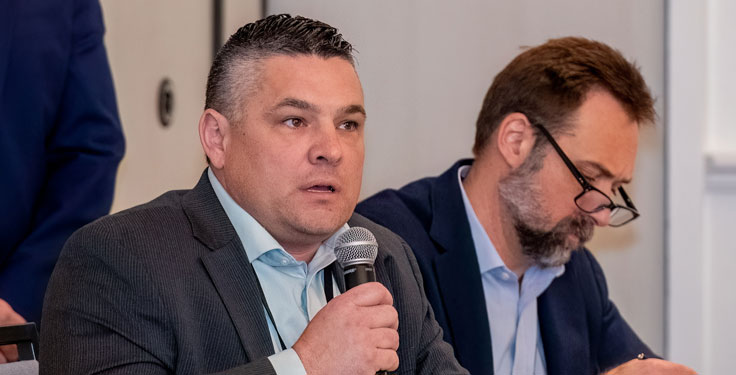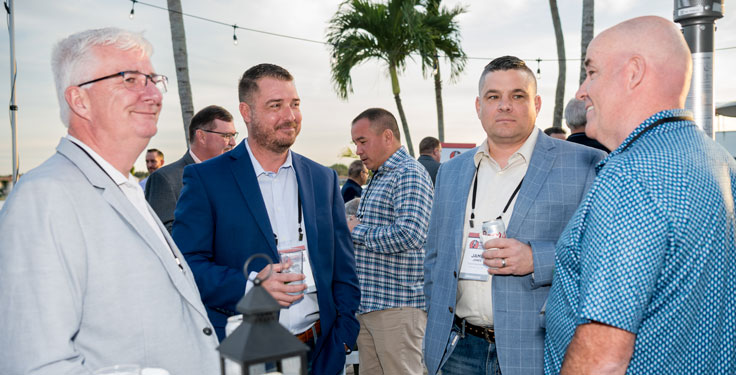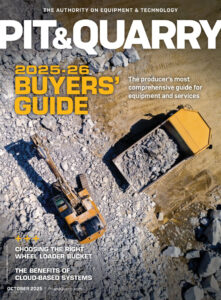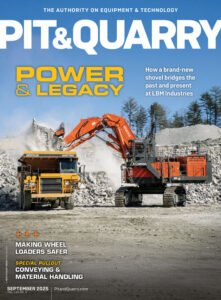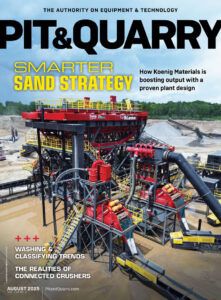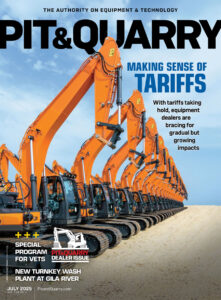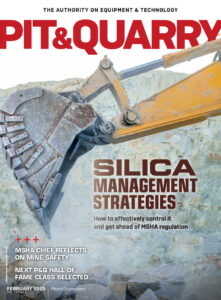The following transcript was edited for brevity and clarity from one of two concurrent Feb. 2 discussions at the 2024 Pit & Quarry Roundtable & Conference. Part 2 of this conversation can be found here.
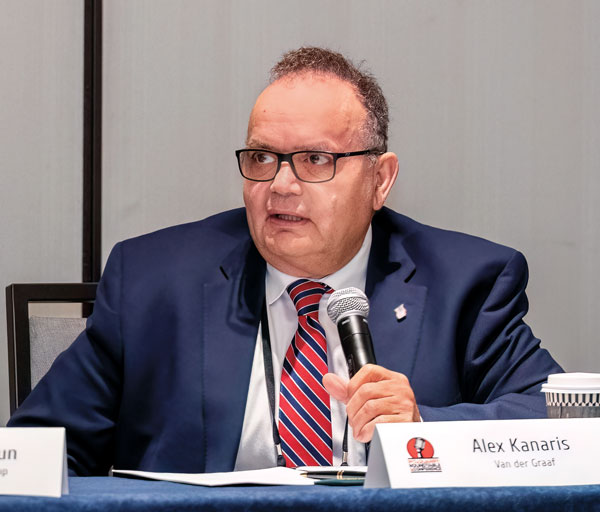
PIT & QUARRY: Let’s talk about the 2024 elections. What business impacts, if any, are you preparing for regarding possible outcomes of the November 2024 elections, and which races are you most invested in from a business standpoint when you look at the more downstream Senate and House races?
ALEX KANARIS (VAN DER GRAAF): The 2024 election is going to be very important for our business and everybody else’s business.
Today is a Groundhog Day, and the only thing I can predict is nine more months of broken borders, a broken economy, high grocery prices and high gas prices. There is nothing we can do to change what is going on.
It comes down to [former President Donald] Trump and [President] Biden. For Trump, a win depends on who becomes the vice president. For Biden, we already know who the vice president is, and she has a lower rating than he has.
For us, we think the Trump administration is going to at least be better than what we have today. With Biden, we don’t even know if he’s going to make it to the next election. And if he makes it, is he going to finish it?
Unfortunately, the political environment is affecting business.
JAMIE JONES (CAPITAL AGGREGATES): With the majority of our business being in Missouri, I feel like right now, whatever happens with the presidential race, we are still going to have a very healthy [industry] in our state. A couple years ago, the governor was able to pass a gas tax. Missouri had been 17 cents per gallon since like the 1990s. He was able to get a two-and-a-half-cents per-year [increase] for five years.
There’s also been a lot of investment. The governor is pushing to improve I-70, the interstate running from St. Louis to Kansas City. They put $2.8 billion into a six-lane I-70 all the way across the state. So, we’re really starting to see this backlog in DOT work in our state.
With what we’re currently seeing with the new gas tax funds and the other money [the governor] invested in general revenue, there’s a comfort level in the state of Missouri with what’s going to happen in the coming years.
SCOTT ALEXANDER (SUMMIT MATERIALS): I don’t really foresee a big change in our industry based on who’s going to be the president in 2025.
There are drivers to our business, and population is a huge one. You can look at per-capita consumption in the back end of what the demand is. Our industry, over the long haul, has seen steady growth.
I think we are trying to spread a little bit of fear, which is unfounded, to look at who’s going to be president. There’s still tremendous demand out there for roads and buildings. Funding is there. So, I will not change my budget forecast for 2025 based on the election.
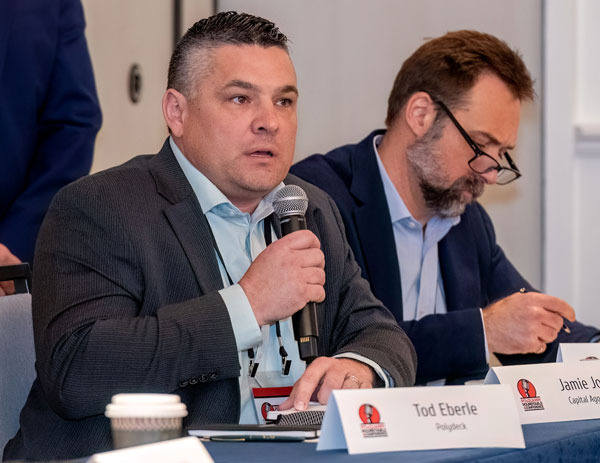
JASON WADDELL (JONES BROS. CONTRACTORS): I kind of share Jamie’s sentiment. I’m in the state of Tennessee, which has a pretty robust state funding mechanism. So long haul, it doesn’t matter politically.
We’re on the contractor side. We are trying to greenfield operations. And I think that who’s in the White House matters there, as well as from a jurisdictional Waters [of the U.S.] determination with the whole nexus/non-nexus piece. That could be a headwind that occurs depending on who’s in the White House and how various agencies are leading.
STEWART PETROVITS (ROUTE 82 SAND & GRAVEL): In regard to what Scott said, in New York I feel like it could be raining gold on the other 49 states, and somehow New York wouldn’t experience that. Everything is so city central. For us, I think it comes down to the state level.
I think we’ve had 300,000 or 400,000 people leave New York state. These are people who pay taxes. These are the top 5, 10 – 1 percenters, even – who are fleeing to places like Florida and Tennessee. We had four of my guys – young guys – run to Carolina, Tennessee and two to Florida in the past year. These guys aren’t billionaires, but the billionaires are fleeing as fast as they can.
So, I think state government is more of a concern for me than who’s actually the president.
NATE RUSSELL (IROCK CRUSHERS): I have seen through my dealer network how emotionally based end users can be on the smaller contractor level.
The only place where we could possibly see a slight business [improvement] that can be good for us is with oil leases. I think Trump will open things back up and get some of these businesses going. But other than that, I think it’s a very emotionally based buying environment. Overcoming that is really going to be the challenge for us and our end users.
GEOFF HAWKER (HAZEMAG): Just one minor point on here for the election: The last time that Trump won, we were celebrating in New Mexico and we found that project activities dropped precipitously.

